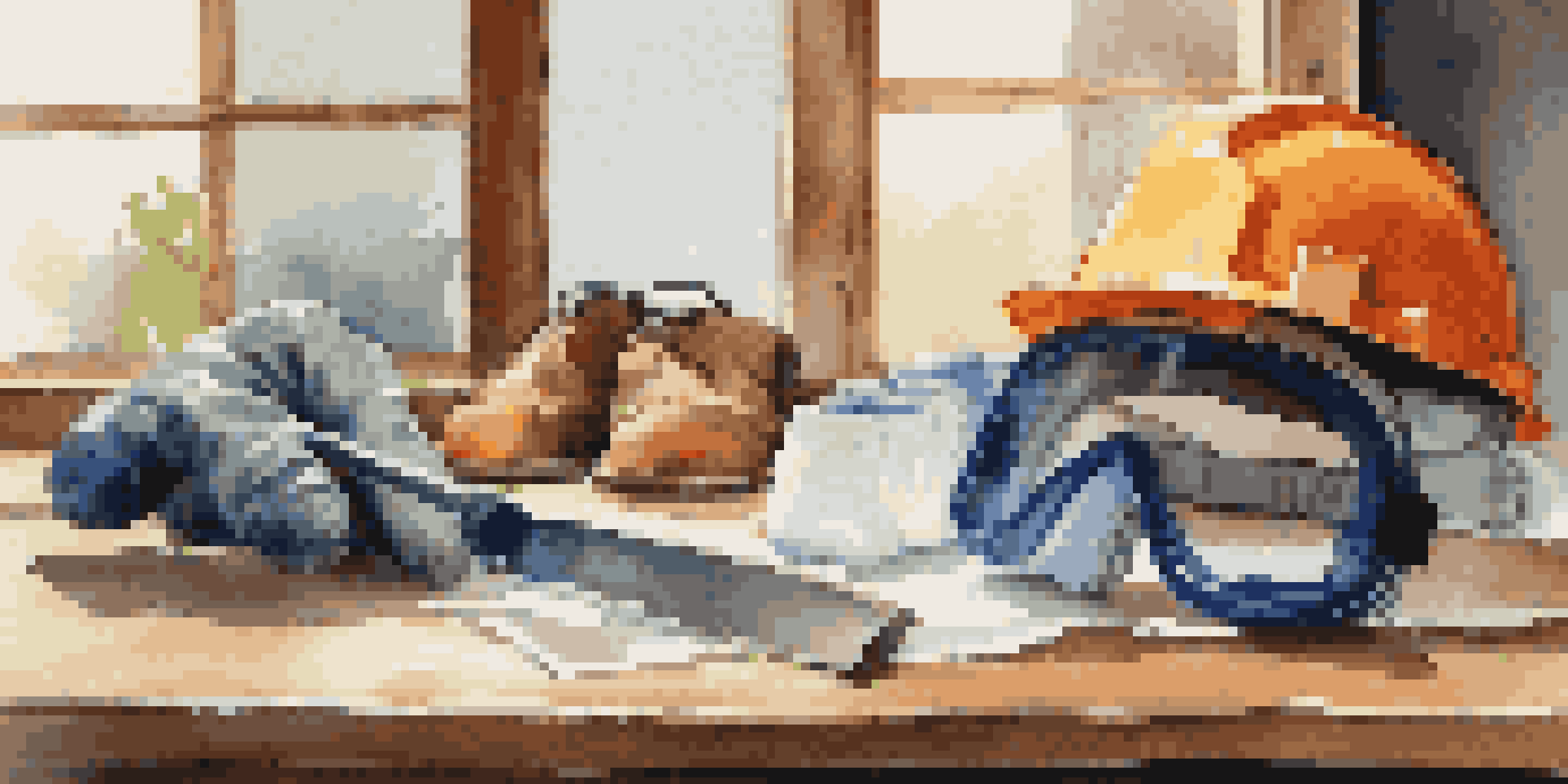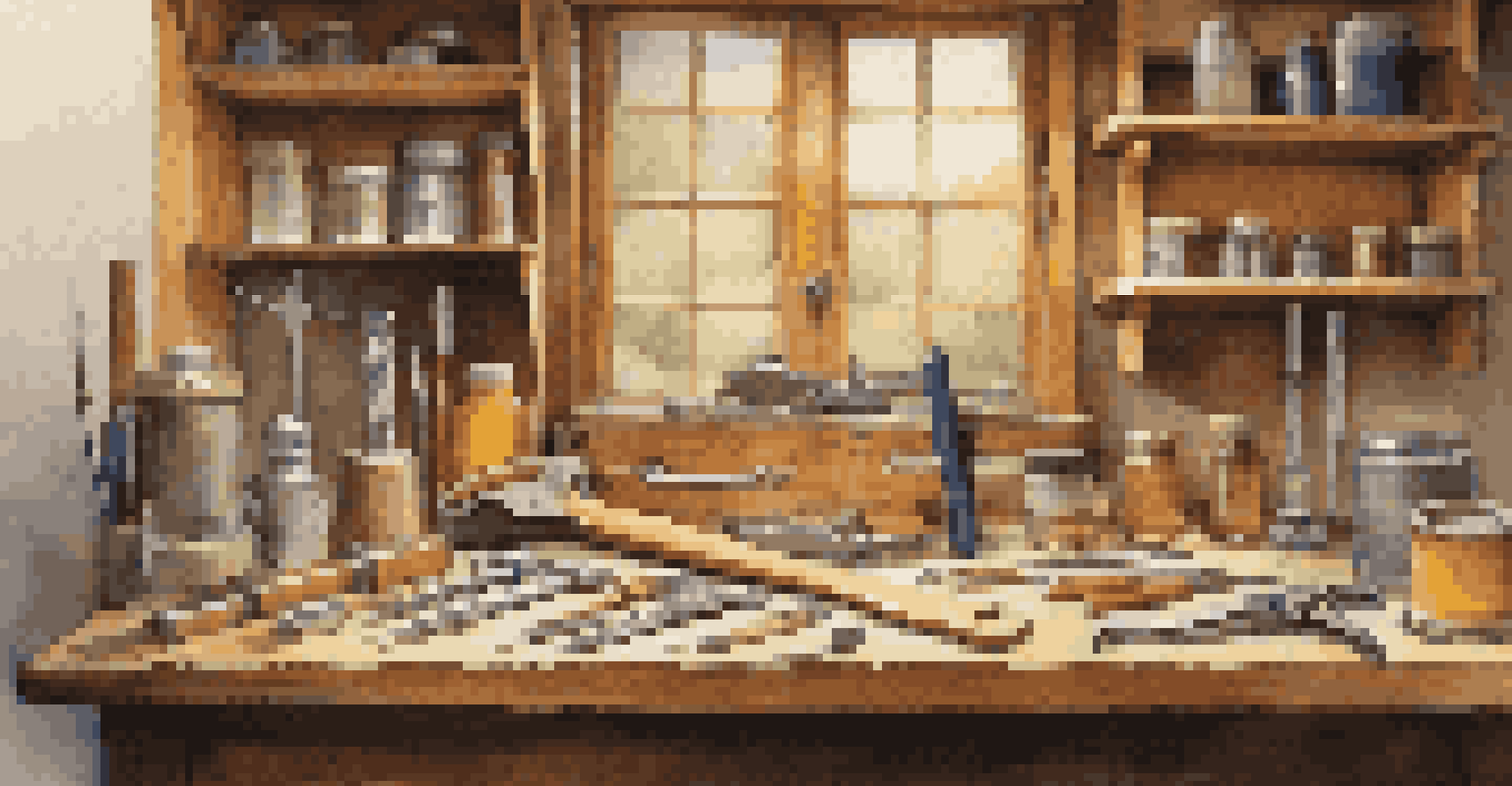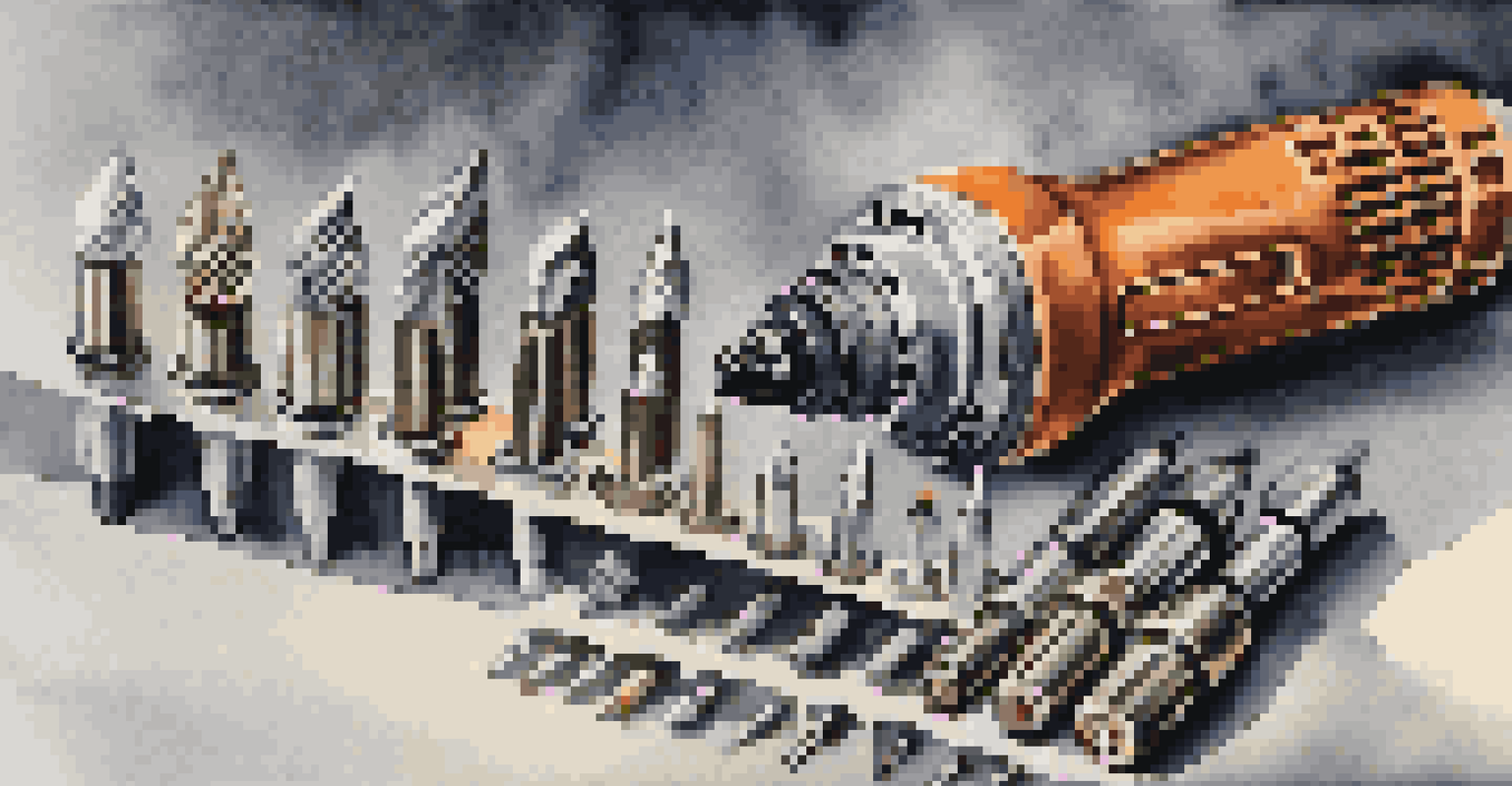Top Tools Every Homeowner Should Keep in Their Workshop

The Versatile Hammer: A Must-Have for Every Project
A hammer is one of the most fundamental tools in any workshop. Whether you're hanging pictures or assembling furniture, a reliable hammer can make a world of difference. It's not just about the striking; it's about having the right weight and balance for your specific tasks.
The right tool for the right job is a major part of success.
When choosing a hammer, consider the type you'll use most frequently. A claw hammer is great for driving nails and removing them, while a sledgehammer is better for heavier-duty jobs. Investing in a good quality hammer means you'll have a dependable tool by your side for years to come.
Remember, the right technique is just as important as the tool itself. A well-placed swing can prevent damage to your materials and ensure your project stays on track. So, before diving into a task, take a moment to understand how to use your hammer effectively.
Screwdrivers: The Unsung Heroes of DIY
Screwdrivers are often taken for granted, yet they are indispensable for any homeowner. These tools come in various shapes and sizes, each designed for specific types of screws. From flathead to Phillips, having a variety of screwdrivers on hand can save you a lot of frustration.

Beyond just the standard options, consider investing in a screwdriver set that includes specialty drivers. For instance, a Torx screwdriver can be essential for certain electronics or furniture assembly. Having the right screwdriver not only makes the job easier but also prevents stripping screws, which can lead to bigger headaches down the road.
Essential Tools for Every Project
A reliable set of tools, including hammers, screwdrivers, and tape measures, can significantly enhance your DIY experience.
Moreover, ergonomic screwdrivers can make a significant difference, especially during lengthy projects. When your tools are comfortable to use, you're more likely to complete your tasks efficiently and enjoyably.
The Importance of a Reliable Tape Measure
A tape measure is an essential tool that every homeowner should own. Accurate measurements are the backbone of successful projects, whether you're measuring a room for new furniture or planning a DIY renovation. A sturdy tape measure can save you time and prevent costly mistakes.
Safety isn't just a slogan, it's a way of life.
Look for a tape measure with clear markings and a sturdy casing. Some models even come with built-in features like a locking mechanism, which can be incredibly helpful when working alone. Additionally, a tape measure with a magnetic tip can make it easier to secure the tape to metal surfaces, providing extra convenience.
Lastly, consider opting for a longer tape measure, especially for larger projects. While a standard 25-foot tape is often sufficient, a 35-foot or 50-foot option can offer more versatility when tackling bigger tasks.
A Good Level: Ensuring Everything is Straight
The level is a simple yet vital tool that ensures your projects are perfectly aligned. Whether you're installing shelves or hanging artwork, a level helps you avoid the frustration of a crooked finish. It’s one of those tools that, when used correctly, can elevate the quality of your work.
Most homeowners will find a standard bubble level to be sufficient, but consider a laser level for more extensive projects. Laser levels provide a straight line over long distances, which can be a game changer for larger installations. Plus, they are easy to use and can save you a lot of time.
Safety Gear is a Must-Have
Wearing safety gear like goggles and gloves protects you from injuries, ensuring a safer working environment.
Using a level might seem straightforward, but it’s essential to check your work regularly. Even small shifts can lead to big problems later on, so make it a habit to verify your measurements as you go.
Pliers: Essential for Gripping and Twisting
Pliers are versatile tools that every homeowner should keep handy. They come in various styles, including needle-nose, slip-joint, and locking pliers, each serving a unique purpose. From bending wire to gripping small objects, pliers can make a variety of tasks much easier.
When selecting pliers, consider the tasks you'll most often perform. For intricate work, needle-nose pliers can help you reach tight spaces, while slip-joint pliers are great for general gripping and turning. A good pair of locking pliers can also be invaluable when you need a secure grip.
Don’t forget to maintain your pliers, as rust or wear can hinder their effectiveness. A quick cleaning and oiling after use can keep them in top shape and ready for your next project.
A Power Drill: The Heart of Any Workshop
A power drill is an essential tool for any homeowner's workshop. This versatile tool can handle everything from drilling holes to driving screws, making it a real time-saver. Whether you're a seasoned DIYer or just starting, a power drill can be your best friend.
When selecting a power drill, consider opting for a cordless model. These drills offer freedom of movement and are often lighter, making them easier to handle. Look for features like adjustable torque settings, which allow you to control the power and speed for different tasks.
Technique Matters Just as Much
Using tools with the right technique is crucial; it not only improves your efficiency but also prevents damage to your materials.
Lastly, investing in a set of drill bits is crucial. Different projects will require different sizes and types, so having a variety of bits on hand ensures you're always prepared.
Safety Gear: Protect Yourself While You Work
Safety gear is a crucial aspect of any workshop, yet it's often overlooked. Wearing appropriate gear, like safety goggles and gloves, can protect you from potential injuries while working on projects. It's better to be safe than sorry, especially when using power tools.
Consider investing in a good pair of work gloves, as they can provide grip and protect your hands from cuts or scrapes. Safety goggles are also essential, as they shield your eyes from dust and debris. Never underestimate the importance of a dust mask when working with materials that can create harmful particles.

Lastly, remember that safety gear is not just for big projects. Even simple tasks can pose risks, so make it a habit to wear your gear every time you step into your workshop.